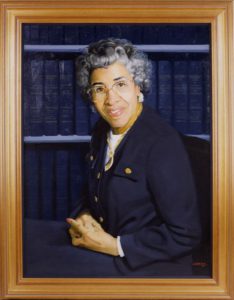Archives
Verda Freeman Welcome – A Black History Trailblazer
Verda Freeman Welcome’s life is a story of determination, persistence and courage. It is also the story of a significant first, as the Honorable Verda Welcome was the first African-American woman in the United States to be elected to a state senate seat.
The civil rights and community activist was born on a small farm in North Carolina, one of fifteen children of farmers John and Docia Freeman. Faced with limited funds for education after her mother died, Mrs. Welcome worked during the day and attended school at night. The strain of this demanding schedule was evident, and she was encouraged to drop out of school. She refused – a decision that changed the course of her life.
Committed to completing her education, Mrs. Welcome decided to come to Baltimore in 1929, when she was 22 years old. She graduated three years later from Coppin State Teachers College and went on to receive a bachelor’s degree in history from Morgan State College in 1939. Recognizing that education is the key that opens doors to opportunity, Mrs. Welcome persisted in her pursuit of higher education; she attended New York University and received a master’s degree in history in 1943. She taught in the Baltimore City schools for eleven years, 1934 to 1945.
As an African-American woman in the 1950s and ‘60s, it took faith and determination for Mrs. Welcome to aspire to political office. Undaunted, she was elected to the Maryland House of Delegates to represent Baltimore City’s fourth district in 1958 – the first African-American woman to win the seat and one of two African-American women elected to the State Legislature for the first time. She served as a delegate until 1962, when she was elected to the Maryland Senate, becoming America’s first African-American female state senator. She served in the Senate until 1982.
Mrs. Welcome challenged the status quo in championing significant social and workplace initiatives during her 25 years in the Maryland Legislature. They included ending racial discrimination, equal pay for equal work, stricter employment regulations and voter registration. She also advocated for the abolition of capital punishment, creating the rank of lieutenant for policewomen in Baltimore City, and reforms in the state’s correctional facilities.
Black History events and activities are going on throughout February in Maryland. They offer opportunities to learn more about the contributions trail-blazing African Americans have made to our state and the nation. There are also events celebrating Black History Month in Washington, D.C.


 1-888-373-7888
1-888-373-7888 233733
233733